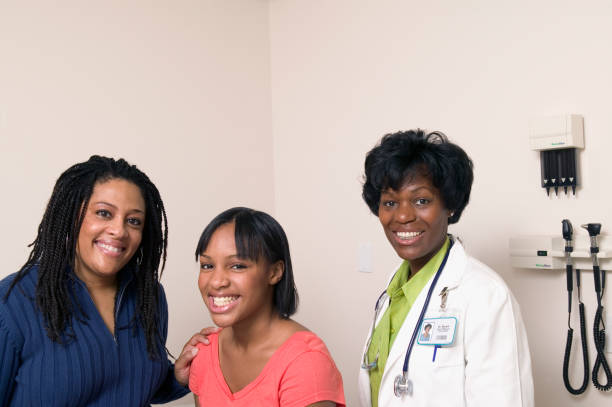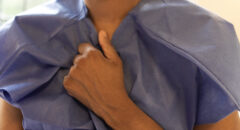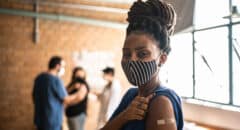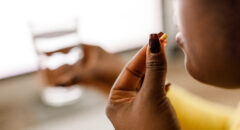
With the way the world operates today, nothing should cause any type of shock. From the news on television and what you hear on the radio to the triggering and uncomfortable things posted all over the internet; the world and its people have seen it all. It’s kind of to the point where everyone is desensitized and nothing scares them anymore. So that means nothing should come as a shock to you right? Especially with everything people are exposed to and with what has happened in the past, correct? Unfortunately, that might not be the truth. There is actually something that can come as a huge shock to you, especially if you're a parent. Now brace yourself mom, dad or guardian but did you know that your child might need a mammogram? Appalling? Yes of course, but seriously you may need to get your child a mammogram.
RELATED: 5 Mammogram Myths Every Woman Should Know
Can Children Develop Breast Cancer?
When it comes to the body truthfully, certain illnesses and diseases can happen to anyone especially when there are underlying issues or other factors that can trigger them.
In the case of “can children develop breast cancer” the answer is yes. Though it might be very rare and uncommon, it can happen. Some children can develop a tumor in their breast tissue which is called fibroadenoma.
Thankfully fibroadenomas are benign, meaning they aren’t cancerous. If this type of tumor is found in a child, it will not need any type of treatment, but it will need to be monitored because it can develop into cancer.
On the other hand, some children develop malignant tumors. Malignant tumors are diseased, cancerous tumors.
When a child develops breast cancer, in many cases it can be because the child has another type of cancer already such as leukemia, lymphoma and/or soft tissue sarcoma.
If either of these cancers spread to the child’s breast tissue, there is a chance that it will develop into breast cancer.
RELATED: Child Cancers Are Rare, But Here Are Signs to Look For
What About Triple Negative Breast Cancer?
Now that we know it’s possible for a child to develop breast cancer, let's discuss whether or not a child could develop triple-negative breast cancer. Though triple-negative is not a common type of cancer that is seen among people, it can develop in a child. Triple-negative breast cancer is a fast-growing type of cancer so if it does develop in your child, it’s important to watch out for signs and see a doctor as soon as you notice the symptoms and suspect something isn’t right.
What Are The Odds Of Your Child Developing This Form Of Cancer?
Since triple-negative breast cancer isn’t a common type of cancer, the odds are typically low, but there are some things to take into consideration.
Triple-negative is most commonly found in Black women under the age of 40, but can develop in women of any age, race and ethnicity. It develops in about every 1-5 women who have breast cancer so that gives an estimate about 20% of women developing it, meaning your child’s chances may be even lower.
Your child has a higher risk of developing breast cancer if:
- A parent or sibling had breast cancer
- Your child is currently battling a cancer of their own
- There is a change in the BRCA1, BRCA2 gene, or any other type of breast cancer-causing gene
- They had any type of radiation to their chest or breast to treat another type of cancer
RELATED: Why Do Fewer Blacks Survive Childhood Cancers?
What You Can Do If You Suspect Something Isn’t Right?
If you’re wondering if your child needs a mammogram, first take a look at these symptoms:
- A lump in the arm, around the nipple or breast area
- A nipple that has turned inward
- Skin on or around the breast that is scaly, itchy, red, swollen, dimpled, puckered or uneven
- Fluids leaking from the nipple (blood as well)
If you notice any of these on your child, reach out to a doctor immediately so they can help you determine what’s happening and what to do next.
If your child is older, teach them how to check themselves out and tell them what to look for when they are doing it. If a child develops breast cancer, it’s usually common among teenagers. During puberty, it’s typical for asymmetrical breast development.
However, it is best to be mindful and ask if they notice any other symptoms just to be on the safe side. As scary as it may be to know that a child or your child can develop breast cancer, always remember there are options out there and with the doctor's and your help, your child will do great.








